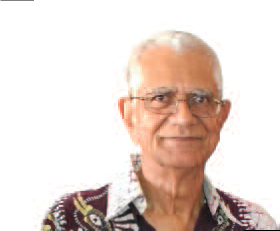In Perspective. The 550,000 or so people of Guyana – not even a quarter of the population of Miami-Dade or Broward counties and among the poorest in the Western Hemisphere – are facing a very happy dilemma: how to spend a windfall of billions of dollars.
Should the money be distributed to the people or should it go towards infrastructure and other capital expenditure to make the English-speaking former British colony economically self-sufficient? Or should it be a combination of both?
The money will come not from the discovery of the mythical city, long rumored to be in Guyana, where El Dorado, the king, bathed in gold dust. It will come when Exxon Mobile and other multinationals start pumping oil from reserves about 150 miles from the coast.
“Black gold” has been discovered, finally, after about 75 years of exploration.
Proven reserves of several billion barrels of light crude, with an estimated value of more than $200 billion, will yield around 750,000 barrels of oil per day, according to some estimates. Exxon will begin pumping by 2020 and Guyana’s oil income will be around $300 million the first year, rising to around $1.6 billion annually in the first five years. Norwaybased energy research firm Rystad estimated that Guyana could end up with $20 billion over time from the Exxon Mobile discoveries alone.
An exploration deal signed with the government gives Exxon Mobile 75 percent of the annual revenue and Guyana will get a two percent royalty and 50 percent of the remaining proceeds, The Wall Street Journal reported. The agreement was signed years ago, when finding oil seemed a pipe dream. Now it is being criticized by the United Nations and some Guyanese, a few of whom are suing to have it amended and are demanding full transparency in any plan on spending the oil dollars, especially to eliminate corruption.
News from Guyana indicates also that another heated debate centers on a proposal for cash to be given to every household, similar to what happens with oil revenues in Alaska. It came from economist and veteran activist Clive Thomas, a university professor and a founder of the Working Peoples Alliance (WPA), a minority partner in the government. No official position has been announced but Finance Minister Winston Jordan flatly opposes any handout, invoking the ancient adage, “Give a man a fish and you feed him for a day. Teach a man to fish and you feed him for a lifetime.” The leader of the opposition in Parliament, Bharrat Jagdeo, a former president and finance minister, also opposes any payout but he wants the country’s crippling debt to have first claim on the oil revenues.
Establishing and maintaining prosperity from oil wealth must have several components, including creation of a Sovereign Wealth Fund — a national savings fund; paying down the national debt; and substantial upgrading of infrastructure, including mitigating flooding along the coastline, where the majority of the population lives and which is below sea level, along with improving drainage canals, building better and more roads and enhancing port facilities.
It should also include adequate funding for social services, including the drinking water supply, health care and education — with schools emphasizing science-technology-engineering-mathematics (STEM) curricula and making computers and Internet access available to all.
There is need also to buttress existing core areas of the economy, such as agriculture -rice, vegetable oils, spices, meats and poultry, dairy products, fishing and shrimping. Sugar, a long-time economic mainstay, is being phased out but there are still opportunities in industry, such as the ongoing mining of bauxite (the ore from which aluminum is made)
and gold, timber harvesting and textile manufacturing. Canning can be added to the list.
The government must not let the country come to rely solely on oil as the economic engine, with the money drained off to pay for imports of goods, many of which are already being produced in Guyana and which can be expanded for self-sufficient and exports. The land is arable and the seas are stocked with fish.
To draw a current lesson from a decades-old spat between the late Eric Williams, prime minister of oil-rich Trinidad and Tobago, and the late Forbes Burnham, president of agriculture-oriented Guyana: Williams is reported to have declared, “Oil doesn’t spoil,” to which Burnham supposedly responded, “But you can’t eat it.” But you can have both.
So long as the government and the people are prudent about how the new-found riches are used, and avoid a return to the ruinous past of violent racially motivated political instability, the “black gold” lying deep in the ocean will be a blessing and not a curse.
And, yes, perhaps each household should be given some of the cash, if only a small amount, say $100, as a one-time payout to let the people experience an immediate, tangible benefit from their oil. As for future payouts, it should be remembered that in Alaska, for example, money is not handed out directly from oil revenue but from the proceeds of investments by the Alaska Permanent Fund – the state’s sovereign wealth fund. That takes time.
Guyana-born Mohamed Hamaludin worked as a journalist for more than 40 years, including at South Florida Times, where he retired as executive editor.











No Comment